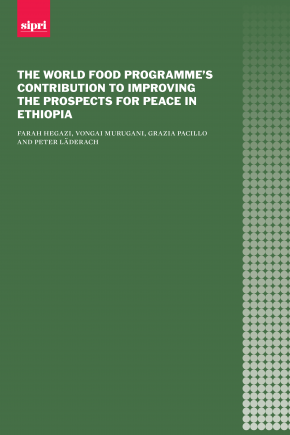The World Food Programme’s Contribution to Improving the Prospects for Peace in Ethiopia

This report aims to explain and assess the contribution of WFP Ethiopia’s climate adaptation and risk management programmes to peace in Ethiopia. The research focused on the Satellite Index Insurance for Pastoralists in Ethiopia (SIIPE) programme, a multidimensional programme that aims to enhance beneficiaries’ integrated risk management capacities. The results indicate that the SIIPE programme can potentially contribute to conflict reduction and thus negative peace in the Somali region of Ethiopia through reducing herders’ mobility during droughts and improving natural resource management. They also find that there is a lack of clarity regarding the selection criteria for the programme, which proved to be a point of potential contention, and that conflict analysis and sensitivity are not incorporated into the programme’s design, since conflict reduction was not an objective of SIIPE. Based on these findings, the report makes recommendations to improve WFP’s contribution to the prospects for peace.
1. Introduction
2. Historical, political and geographic context
3. Ethiopia case study approach
4. Findings: WFP’s contribution to improving the prospects for peace in Ethiopia
5. Cross-cutting components for improving the prospects for peace
6. Conclusions


